In which the two monkeys eat dumplings for breakfast and avoid being scammed.
Kat: A brief 19-hour stopover in Shanghai gave Justin and I the opportunity to visit the Bund, the classic Shanghai riverside. With only a morning to spare, I went in search of Shanghai’s famous dumplings, xiao long bao (steamed pork dumplings). I call them famous, but really they’re the only dumplings I know how to say with my limited Mandarin.
The hostel was decidedly unhelpful, from its unwillingness to provide even simple toilet paper in the mouldy bathrooms. At 8am I asked, “I’d like to get dumplings for breakfast. Where can I get some?”
“I don’t know. Nothing’s open. You can try our restaurant later. We are very famous in China for dumplings.”
I’m sure every restaurant is famous in China for dumplings. It’s like saying Penrith is famous for bogans. After a brief sales pitch we stepped out the door and found some dumplings two doors down, open at 8am and filled with Chinese people having breakfast.
At 7 Yuan (approx. $1) for 8 dumplings, we waited for xiao long bao as the staff made them by hand, mixing pork and spices and wrapping them in thin dough. We waited in drooling expectation, checking out the other tables for hints of what was to come. Finally, a wooden tray with eight round white balls.
A friend once taught me how to eat dumplings – first bite a tiny hole, then suck the juice out, then eat the rest. Unfortunately, these delicate skills resulted in me spilling the soup, the pork filling falling out and leaving me with a dumping wrapper dangling from my chopstick.
Stabbing the pork with my chopstick I crusaded valiantly against the slippery blobs of delight.
Justin: I love dumplings and remember going to Ashfield after church in Newtown to get some dumplings. Yes, they are blobs of absolute delight. In addition to the dumplings I also ordered a noodle soup that contained some pieces of, at least I surmised, liver and vegetables. I really enjoyed getting into breakfast in this way. Normally in Australia a warm breakfast would either be a fry-up or some porridge. Personally, I prefer foods that can be consumed at other parts of the day for breakfast. This preference is partly derived from my Hungarian heritage, who love to eat cold cuts for breakfast. I loved the noodle soup, it was hearty and very satisfying.
It was also a really atmospheric eatery where you felt the world in China open up, as people quickly downed their breakfasts. The sunlight came into the store mixing with the smoke and steam from the kitchen and dumpling hot pots, like being in a culinary sauna.
Kat: We wandered the Bund, originally named for the muddy waters of the river. On one side the mix of old, colonial architecture, the other side, Pudong, where the science fiction city rose up against the flowing Huangpu.
Justin: The river separates the new from the old. The Bund looks onto the new city. We marvelled at some of the unusual and futuristic architecture that Shangai has to offer whilst munching down on some egg tarts we got from a bakery. That’s another area that China definitely does well in: bakeries. I’ve had samplings before from Chinatown and downtown Sydney and this egg tart was sensational.
Kat: Strolling along, we came across a pair of girls who wanted their photo taken. We obliged; they then wanted a photo with us. This wasn’t unusual, given Justin’s size in Asia, he’s quite popular for photos with the locals.
But something wasn’t quite right. As we chatted, they introduced themselves as teachers from a country province, yet their English patter was very good. Too good for country kindy teachers in rural China. They asked us about our trip, told us the populations of Sydney and Melbourne (and how we eat emus). Then, after this friendly banter, they proposed we go to a tea house to experience some local culture.
Red alert. The teahouse scam is an old one, but I’d never experienced it myself. I’d read about unsuspecting tourists online, who encounter friendly locals, visit a teahouse (or other drinking establishment), and are duped into spending a lot of money at the shop. When the bill is to be paid, the scammers are nowhere to be found. Of course, the teashop owner has given them a hefty kickback.
Both Justin and I looked at each other. “Sorry, we have a flight to catch.”
A legitimate excuse, but suddenly our new Chinese friends weren’t interested in us any more. Funny that.
Justin: There are scammers everywhere looking to steal some pennies from naive and unassuming tourists, of which there is no short supply. I think Kat detected these two earlier than me, thankfully. In hindsight they both were going down a sales script very robotically. After all, Chinese English teachers in rural areas do not speak English really well. Neither do they respond to everything you say and mirror your language and interests. These girls were very good at what they do – it’s actually quite sad and no doubt this experience has groomed us ahead of India, a place were we will likely experience even more pressure to surrender money to scammers. So take note, don’t every agree for a tea with some locals OK. You’ll foot the exorbitant bill and a bitter after-taste.
Kat: As we walked back to our toilet paper free hostel, several other people asked us for photos. We were suddenly in a rush. Who knows if they were legitimate or not?
In People’s Square we stopped to admire the cherry blossoms in full bloom underneath the skyscrapers. Our morning in Shanghai over, we returned to the airport to catch our flight to Seoul.


